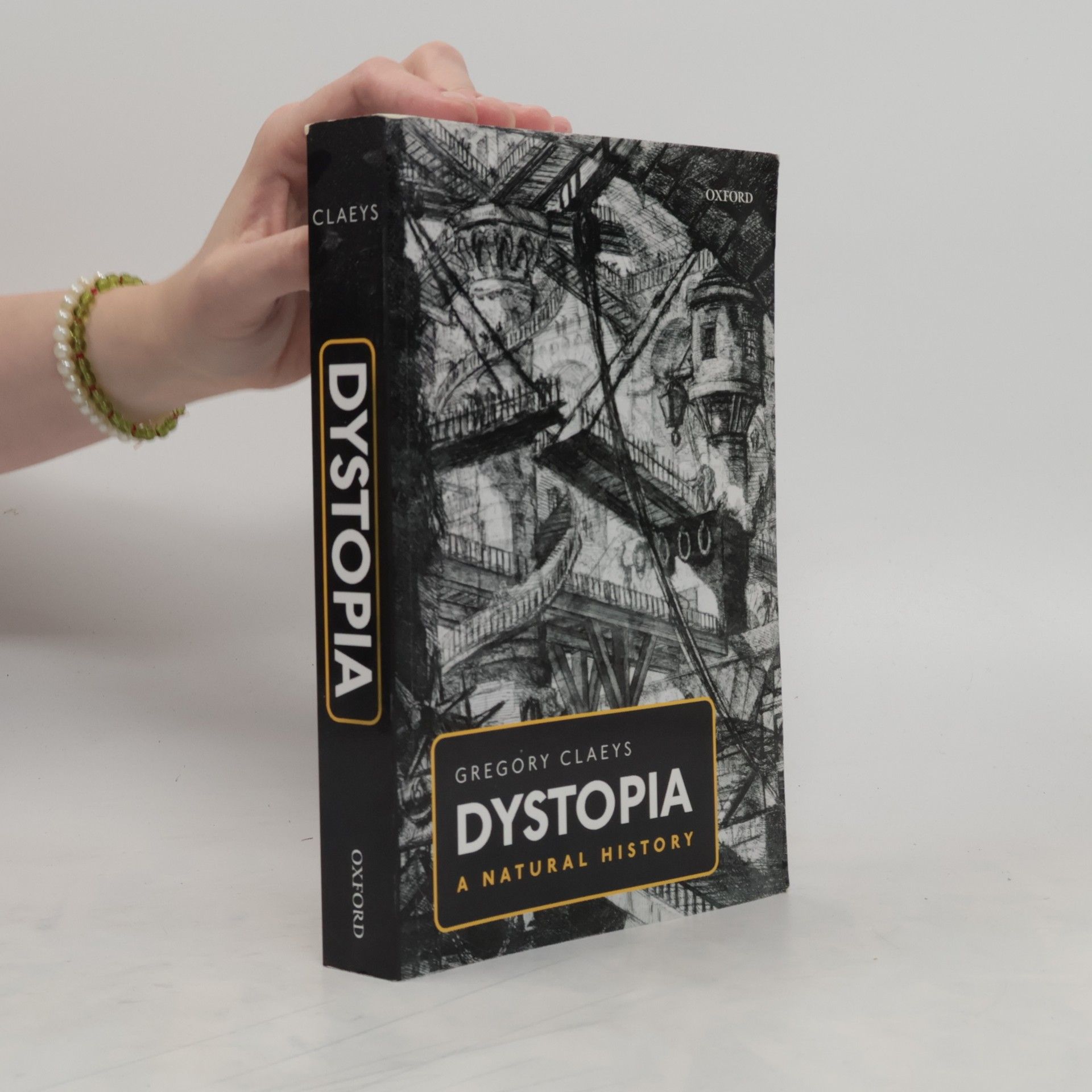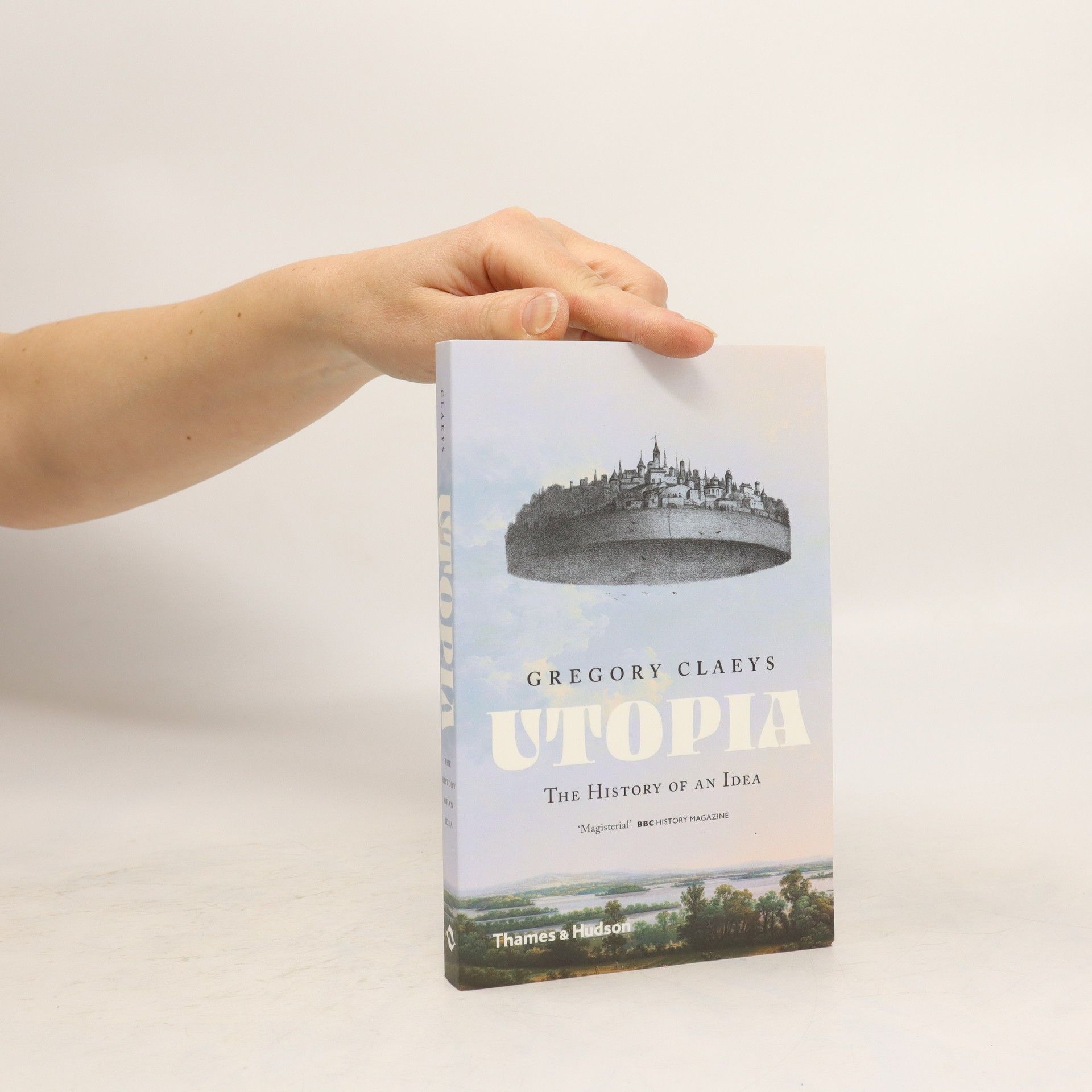This monograph is the first dedicated to the concept of dystopia, encompassing both satirical literary traditions and real-life despotisms. It redefines key concepts and the chronology of the genre, offering a transformative understanding. Part One explores the theory and prehistory of dystopia, contrasting it with utopia. While utopia promotes enhanced sociability, dystopia is characterized by estrangement, fear, and the creation of 'enemy' categories. It emphasizes the emotions of fear and hatred central to modern despotisms, drawing on the works of Le Bon, Freud, and others to illustrate how these emotions are manipulated. Utopia and dystopia are positioned as extremes on a sociability spectrum, linked by heightened group identity. The prehistory section investigates the demonization of 'enemies,' tracing it from early monstrosity concepts to Christian views of the devil and witchcraft. Part Two surveys significant dystopian moments in the twentieth century, focusing on Nazi Germany, Stalinism, the Chinese Cultural Revolution, and Cambodia under Pol Pot, with an emphasis on the political religion hypothesis as a key explanation for communism's excesses. Part Three delves into literary dystopias, starting with anti-Jacobin writings of the 1790s and addressing major twentieth-century texts like Huxley's "Brave New World" and Orwell's "Nineteen Eighty-Four," before examining the genre's evolution into the present.
Gregory Claeys Books






In the face of Earth's environmental crisis, it is evident that technological innovation alone cannot save our planet; a more radical approach is necessary, involving significant changes in both individual and collective behavior. This exploration of the utopian tradition highlights how its expansive history—from ancient Sparta to contemporary thinkers—can provide moral and imaginative guidance amid catastrophe. Utopianism, critical of excessive consumption and luxury, may illuminate a path toward a society that prioritizes equality, sociability, and sustainability. The author presents a realist definition of utopia, emphasizing sociability and belonging as central themes. By examining the evolution of these ideas from the eighteenth and nineteenth centuries to modern debates surrounding alternatives to consumerism, the author argues that the current global warming limit of 1.5°C will lead to disaster without further reductions. In response, a radical Green New Deal program is proposed, merging sociability theories with strategies to eliminate fossil fuel dependence and unsustainable commodities. This urgent call for a revival of utopian ideas advocates for their role not as an escape from reality but as a powerful means to enact change and combat our planet's destruction.
The book presents a revised timeline detailing the rise of opposition to the British Empire between 1850 and 1920. Gregory Claeys explores the various movements and ideologies that challenged imperial authority during this period, shedding light on the complexities of colonial resistance and the socio-political factors that influenced these developments. Through this analysis, the author aims to provide fresh insights into the historical narrative surrounding British imperialism and its critics.
Using a combination of historical and thematic approaches, this volume engages with the fascinating and complex genre of utopian literature.
John Stuart Mill: A Very Short Introduction
- 160 pages
- 6 hours of reading
John Stuart Mill (1806-73) is widely regarded as the leading liberal philosopher, economist, and political theorist of nineteenth century Britain. This book offers a brief survey of his life and ideas, highlighting the philosophical context for his work, exploring the key themes in his writings, and analysing their lasting influence.
Marx and Marxism
- 544 pages
- 20 hours of reading
An illuminating history of Marx's thought and intellectual influence from a leading historian of socialism Why was Marx so successful as a thinker? Did he have a system and if so, what does it consist of? How did Marxism develop in the twentieth century and what does it mean today? Karl Marx remains the most influential and controversial political thinker in history. The movements associated with his name have lent hope to many victims of tyranny and aggression but have also proven disastrous in practice and resulted in the unnecessary deaths of millions. If after the collapse of the Soviet Union his reputation seemed utterly eclipsed, a new generation is reading and discovering Marx in the wake of the recurrent financial crises, growing social inequality and an increasing sense of the injustice and destructiveness of capitalism. Both his critique of capitalism and his vision of the future speak across the centuries to our times, even if the questions he poses are more difficult to answer than ever. In this wide-ranging account, Gregory Claeys, one of Britain's leading historians of socialism, considers Marx's ideas and their development through the Russian Revolution to the present, showing why Marx and Marxism still matter today.
A New View of Society and Other Writings
- 432 pages
- 16 hours of reading
Argues that, since individuals are wholly formed by their environment, education is the crucial factor in transforming them. This work then adopts far more radical position, proposing nothing less than 'the emancipation of mankind' and the creation of a 'new moral world', and a full-scale reorganization of British society.
Aspirations for a better - even a perfect - society have existed throughout history, often imagined in intricate detail by philosophers, poets, social reformers, architects and artists. This book explores a perennially powerful idea: the quest for the ideal society. Gregory Claeys surveys the influence of the idea of Utopia on history. Central to his exploration of ideal worlds are creation myths; archetypes of heaven and the afterlife; new worlds and voyages of discovery; ages of revolution and technological progress; model communities and kibbutzim; political and ecological dystopias; space travel and science fiction. The most significant utopias throughout history - whether envisaged or attempted - are covered, including visions of the ideal society in the West as well as American, Asian, African and the Arab worlds. From classical times to the present day, this compelling book traces the enduring human need to imagine and construct ideal worlds.
The book presents a revised timeline detailing the rise of resistance against the British Empire during the period from 1850 to 1920. It explores the various movements and ideologies that contributed to this opposition, offering fresh insights into the historical context and the dynamics of colonial resistance. Claeys challenges existing narratives and provides a comprehensive analysis of the factors that fueled dissent against imperial rule, making it a significant contribution to the study of British imperial history.
The Macroeconomics of Decarbonisation
- 346 pages
- 13 hours of reading
This book provides a rigorous and accessible portrayal of the macroeconomics of decarbonisation. The book is written in the form of a textbook so to be accessible to a wide readership. It adopts a simple language, avoiding jargon. Each chapter includes a set of key takeaways.

